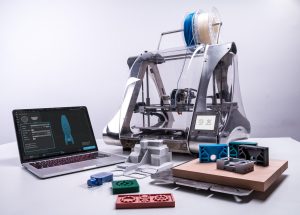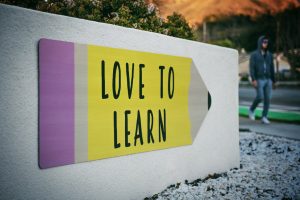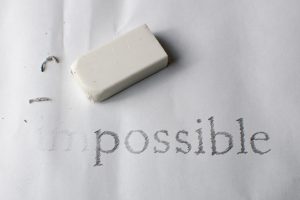 Khan Academy Group Blog
Khan Academy Group Blog
Our group chose to research Khan Academy as our tech topic today. Khan Academy is an online learning resource that creates lessons and videos on a wide range of subjects and topics. It was created in 2008 by Salman Khan, and aims to provide free education for students everywhere. The website states, “Our mission at Khan Academy is to provide a free, world-class education for anyone, anywhere.” The lessons are done in the form of videos, with an instructor drawing about and explaining the topic. There are also opportunities to be tested. The main courses offered are Math, Science and Engineering, Arts and Humanities, College, careers and more, and economics and finance. Within each of these topics there are more specific subjects.
Educational technology such as Khan Academy helps make education and support accessible to all learners. When using this kind of tool, it is important to consider the pros and cons, as well as privacy issues that you may need to be aware of.
Pros:
– help teach students on their own
– easy to access
– wide range of topics/subjects
– you can learn at your own pace
– there are ways to test your learning
– many different questions to ensure you understand
– free, nonprofit
– when students need further explanation about a topic, if the teacher is not easily available for one on one help, Khan Academy can be a resource for that extra guidance.
– can be a good studying tool
-encourages UDL and individual pace of learning
Cons:
– no real classrooms
– teachers are not present
– still very conventional (SAT MCAT prep)
– students must have access to an electronic device and internet connection
– innate differentiation between students
– sometimes you have to sort through many different examples to find one that suits your specific needs/learning style
– when learning from video examples, it can be difficult to replay the same video to go over a specific aspect of the video, as the system tries to move forward onto the next video, however if you access it from another source, the video will play.
– loss of collaboration
– only one teaching style
– the videos could be to fast for some students to follow
– cannot ask specific questions about a subject. The videos are good but if you are not sure about something explained there is no way to clarify
– Students can work ahead of where their class is if they have a strong interest in a subject and then when they are in class they are bored and can start causing disruptions
Link to Khan Academy:
https://www.khanacademy.org/
Privacy Policies:
https://www.khanacademy.org/about/privacy-policy
By: Lauren T, Alison, Meghan, Kiya
 On Tuesday March 17 2020, our tech class ventured into new territory. We had our first ever class online! I was actually kind of surprised at how well it went. The directions were easy to follow and with a little assistance from Rich, which I always seem to rely on, it went pretty smoothly. I have to admit I had some difficulty with the in class assignment and couldn’t get it to work properly. It’s funny, if I were in class, I would have had no issues asking for help. However, Despite not being in the same room as everyone, I felt as though I had everyone’s eyes and ears on directly on me when I spoke. It felt was too intimidating to ask questions. (Just me being a chicken…) I wonder if anyone else felt that way. I know Rich had shown us ways to get the Instructors attention without having to say anything to the class, but I was still too uncomfortable. I realize how much improvement I have made this year in regards to the amount of tech skill I have learned and what I can use with relative confidence. However, in comparison to my cohort, I am lagging behind. When things settle down, I still plan to take a course of two to build on my skills, so I don’t lose the ones I have and can continue to learn and practice new ones.
On Tuesday March 17 2020, our tech class ventured into new territory. We had our first ever class online! I was actually kind of surprised at how well it went. The directions were easy to follow and with a little assistance from Rich, which I always seem to rely on, it went pretty smoothly. I have to admit I had some difficulty with the in class assignment and couldn’t get it to work properly. It’s funny, if I were in class, I would have had no issues asking for help. However, Despite not being in the same room as everyone, I felt as though I had everyone’s eyes and ears on directly on me when I spoke. It felt was too intimidating to ask questions. (Just me being a chicken…) I wonder if anyone else felt that way. I know Rich had shown us ways to get the Instructors attention without having to say anything to the class, but I was still too uncomfortable. I realize how much improvement I have made this year in regards to the amount of tech skill I have learned and what I can use with relative confidence. However, in comparison to my cohort, I am lagging behind. When things settle down, I still plan to take a course of two to build on my skills, so I don’t lose the ones I have and can continue to learn and practice new ones. On Tuesday Feb. 11 2020, our Ed Tech class had a fabulous guest speaker named Jesse Miller, of mediatedreality.com, come and speak to us about online safety and privacy, while promoting education and dialogue surrounding social media use. Unfortunately I had a couple of sick children at home and missed the first part of his presentation. However, what I did see made me feel quite glad that I had grown up without having to worry about the negative effects of social media and any on line related concerns. Today, it seems like everyone is putting their life story out there for the world to see, without truly recognizing the potential consequences and legalities. When I was growing up, there was no social media. The only thing I used a computer for was to play keystone cops and type out resumes. I didn’t even use it to type out an essay for school as we hand wrote everything. Photographs were the most damaging reminder of anything we did, and even those took a few days to get developed. Today, it seems like you can practically ruin your reputation, your career, and possibly you life with one or two poorly thought out social media posts. It is truly a terrifying thought and we need to educate ourselves to be able to use this technology both responsibly and effectively and with a dose of common sense.
On Tuesday Feb. 11 2020, our Ed Tech class had a fabulous guest speaker named Jesse Miller, of mediatedreality.com, come and speak to us about online safety and privacy, while promoting education and dialogue surrounding social media use. Unfortunately I had a couple of sick children at home and missed the first part of his presentation. However, what I did see made me feel quite glad that I had grown up without having to worry about the negative effects of social media and any on line related concerns. Today, it seems like everyone is putting their life story out there for the world to see, without truly recognizing the potential consequences and legalities. When I was growing up, there was no social media. The only thing I used a computer for was to play keystone cops and type out resumes. I didn’t even use it to type out an essay for school as we hand wrote everything. Photographs were the most damaging reminder of anything we did, and even those took a few days to get developed. Today, it seems like you can practically ruin your reputation, your career, and possibly you life with one or two poorly thought out social media posts. It is truly a terrifying thought and we need to educate ourselves to be able to use this technology both responsibly and effectively and with a dose of common sense. Khan Academy Group Blog
Khan Academy Group Blog
 In our ed tech class, we watched the documentary RiP! Remix Manifesto by Brett Gaylor. It essentially talks about the concept of copyright in the music world. In it he follows Girl Talk aka, Greg Gillis who lives as a bio-medical engineer by day and a dj/mashup artist by night. Despite its popularity, Gillis has found himself in hot water over the music he produces because he takes samples of other peoples music, plays with it to create a sound he likes and mixes it with other music and sounds. Though he acknowledges using other peoples creations within the body of his work, to him, he is creating his own music. Gillis has stated that he feels sampling is like an instrument. “There are no original music concepts anyways,” he said. “Even if it’s subconscious, and even if your music isn’t sampled, it’s still based on another idea. Sampling is an original idea, except with more blatant influence from other ideas. It’s really all about how you present your idea in its context” (The Tartan, 2006).
In our ed tech class, we watched the documentary RiP! Remix Manifesto by Brett Gaylor. It essentially talks about the concept of copyright in the music world. In it he follows Girl Talk aka, Greg Gillis who lives as a bio-medical engineer by day and a dj/mashup artist by night. Despite its popularity, Gillis has found himself in hot water over the music he produces because he takes samples of other peoples music, plays with it to create a sound he likes and mixes it with other music and sounds. Though he acknowledges using other peoples creations within the body of his work, to him, he is creating his own music. Gillis has stated that he feels sampling is like an instrument. “There are no original music concepts anyways,” he said. “Even if it’s subconscious, and even if your music isn’t sampled, it’s still based on another idea. Sampling is an original idea, except with more blatant influence from other ideas. It’s really all about how you present your idea in its context” (The Tartan, 2006).

Recent Comments